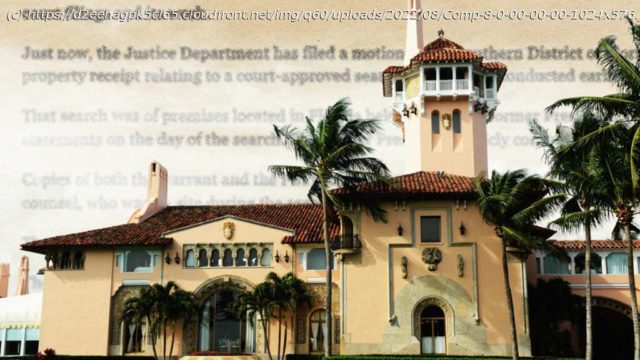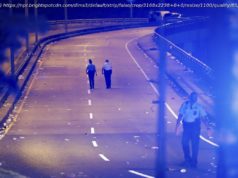The former president’s legal team notably did not endorse his claim that he automatically declassified everything he took with him.
The Justice Department says more than 100 documents that the FBI seized during its August 8 search of Mar-a-Lago, former President Donald Trump’s home and private club in Palm Beach, were marked as classified. Notwithstanding those markings, Trump insists, none of the records were actually classified because he had a «standing order» as president that automatically declassified documents he removed from the Oval Office to study at his residence in the White House. «The very fact that these documents were present at Mar-a-Lago,» he said four days after the search, «means they couldn’t have been classified.»
In a brief they filed today in the U.S. District Court for the Southern District of Florida, Trump’s lawyers notably do not endorse that argument. But they do claim that the status of the «purported ‘classified records'» seized by the FBI is a matter of dispute. «The Government has not proven these records remain classified,» they say. «That issue is to be determined later.»
Trump and the Justice Department are wrangling over the terms of an order that U.S. District Judge Aileen M. Cannon issued last week. Cannon agreed with Trump that a neutral arbiter known as a «special master» should be appointed to review all the material seized at Mar-a-Lago. The special master is supposed to determine which documents might be protected by attorney-client privilege or, more controversially, executive privilege. In the meantime, Cannon said, the FBI may not use the documents to investigate whether Trump or his representatives committed federal felonies by improperly retaining and concealing the records.
Cannon’s order allows intelligence agencies to continue a review aimed at determining whether and to what extent Trump’s retention of the documents compromised national security. But in a motion filed last Thursday, federal prosecutors argued that her order would interfere with that process, which «cannot be readily segregated» from the criminal investigation. They asked Cannon for a partial stay allowing the FBI to continue examining the documents marked as classified, which represent a small subset of some 13,000 items removed from Mar-a-Lago. Failing that, they said, the government «intends to seek relief» from the U.S. Court of Appeals for the 11th Circuit.
Responding to that motion today, Trump lawyers Christopher Kise, Lindsey Halligan, Evan Corcoran, and James Trusty say the government’s concerns «appear exaggerated.» They distinguish between the intelligence review, which seeks to determine «potential damage to national security from allegedly mishandling classified information,» and the FBI’s probe, which focuses on «criminal repercussions for allegedly mishandling classified information.» They argue that the former can proceed even if the latter is suspended.
At the same time, Kise et al. question the premise underlying both processes. «The Government’s stance assumes that if a document has a classification marking, it remains classified irrespective of any actions taken during President Trump’s term in office,» they say. «The Government claims this Court cannot enjoin use of the documents the Government has determined are classified. Therefore, the argument goes, as President Trump has no right to have the documents returned to him—because the Government has unilaterally determined they are classified—the Government should be permitted to continue to use them, in conjunction with the intelligence communities, to build criminal case against him.
Домой
United States
USA — mix Trump's Lawyers Say It's Not Clear Whether 'Purported' Classified Documents at Mar-a-Lago...






